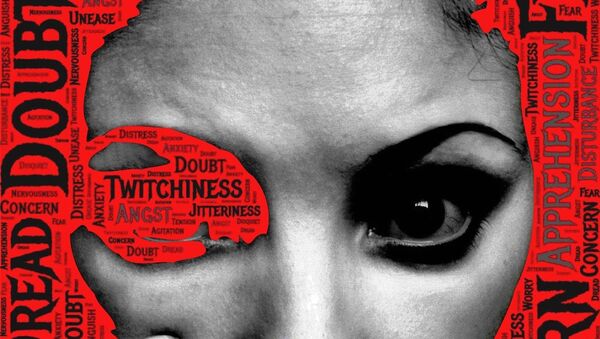Feelings such as "people are looking at me" or "he is planning to hurt me," or "someone is following me" affects one in five people who experience paranoid thoughts at some point in their lives. The majority of others will have fleeting paranoid thoughts at least sometimes.
They are the most frequent symptoms of schizophrenia and cost the NHS in England US$17 billion (£11.8bn) a year.
Now the world of wearable technology is taking a role in tackling the illness. SlowMo, an app, is the first digital platform that provides interactive tools for people to take control of their own lives — on the go — on their cell phone.
The Digitalization of Therapy
The app is geared towards people with paranoia being able to make sense of their issues by visualizing them and literally slowing their thoughts down. The app has been designed to be used across the spectrum of paranoia, from mild to more severe concerns.
The screen is interactive and takes the user through different therapy sessions to manage upsetting thoughts.
SlowMo offers people the opportunity to slow down and notice other information in order to develop safer, less upsetting alternatives to make them feel less distressed.
"The digital therapy platform consists of a website to support the delivery of eight face to face therapy sessions which is synchronized with a mobile app," Dr Amy Hardy, clinical psychologist told Sputnik.
"Each therapy session involves finding out about, trying out and planning how to use new tips for coping with paranoia in daily life," Dr Hardy explains.
The SlowMo digital therapy has been developed by leading clinician researchers as the Institute of Psychiatry, Kings College London and designers from the Helen Hamlyn Center for Design at the Royal College of Art, drawing on first-hand experience of people with mental health conditions from the South London & Maudsley NHS Foundation Trust.
@SlowMoTherapy is a self management tool that can help people take care of their own lives #HealthTechDecisionTime pic.twitter.com/Ko48Gx5pxD
— AXA PPP HT&Y (@HealthTechYou) March 10, 2016
SlowMo — Is this app taking Psychosis Therapy Into the Digital Age?https://t.co/y14ekQSv3j #mhealth #ehealth pic.twitter.com/cAj1Rpn6LM
— Evolyst (@evolyst) March 25, 2016
"It helped me [to] feel understood, like I was not alone and had a friend in my pocket," one service user told researchers.
Dr Hardy developed SlowMo along with innovation design engineer Anna Wojdecka from the Helen Hamlyn Center for Design.


